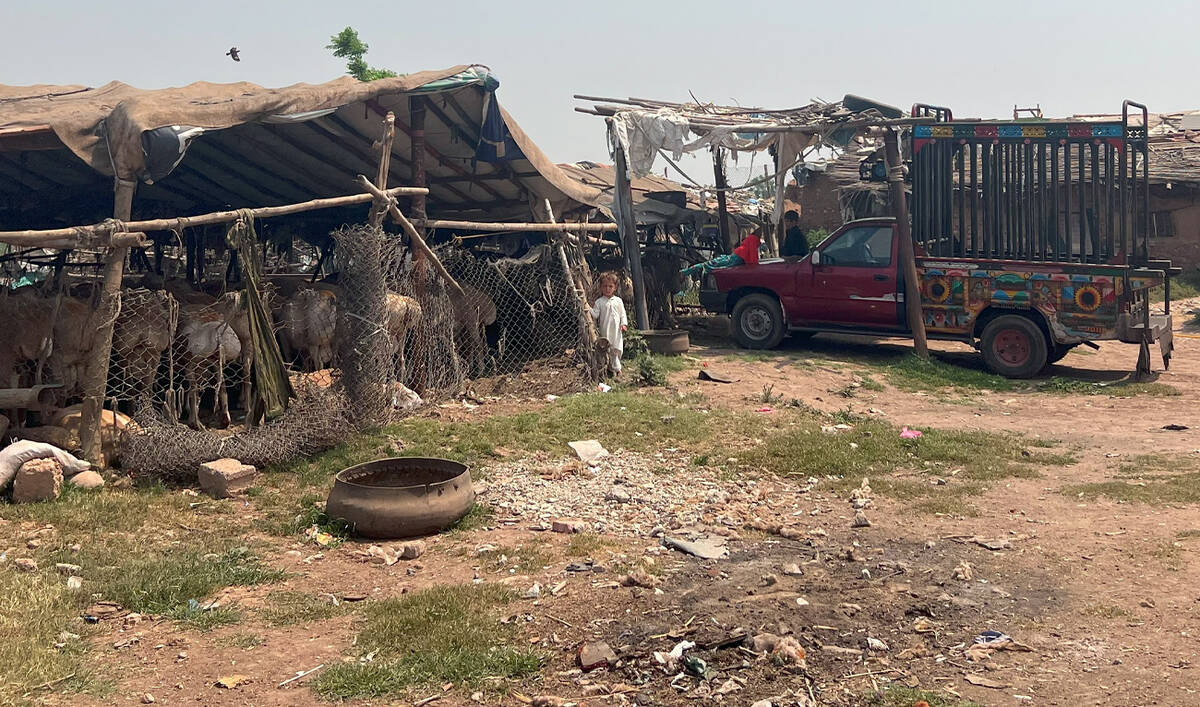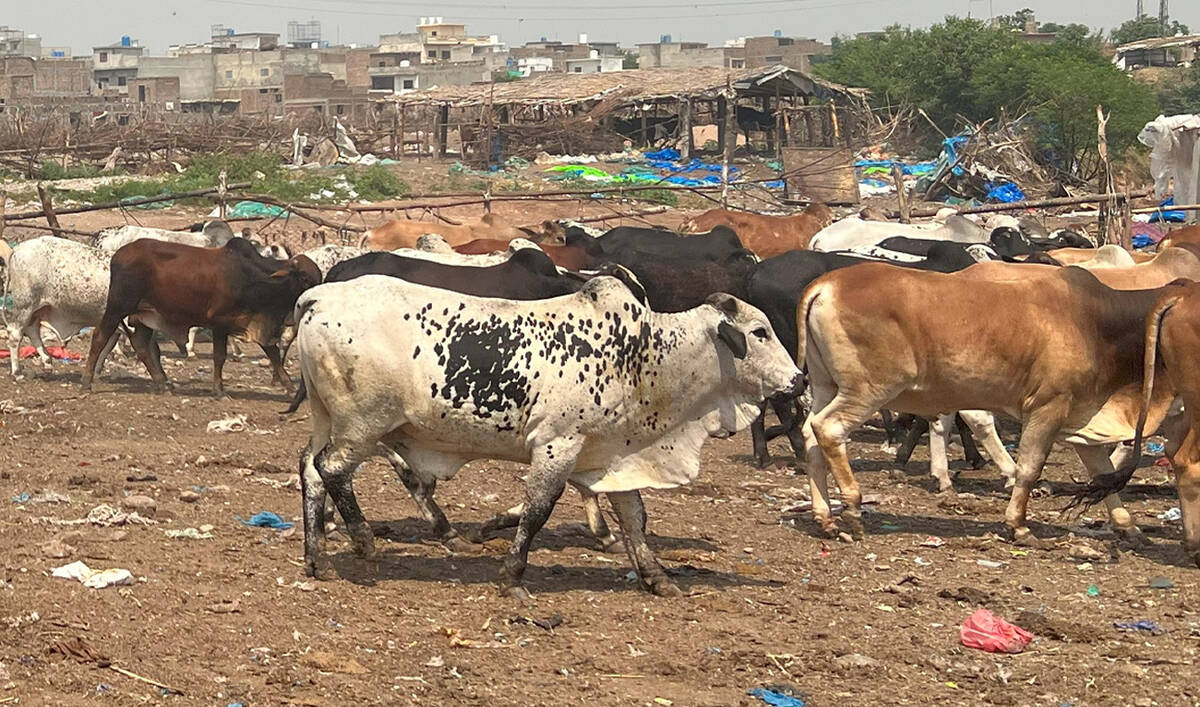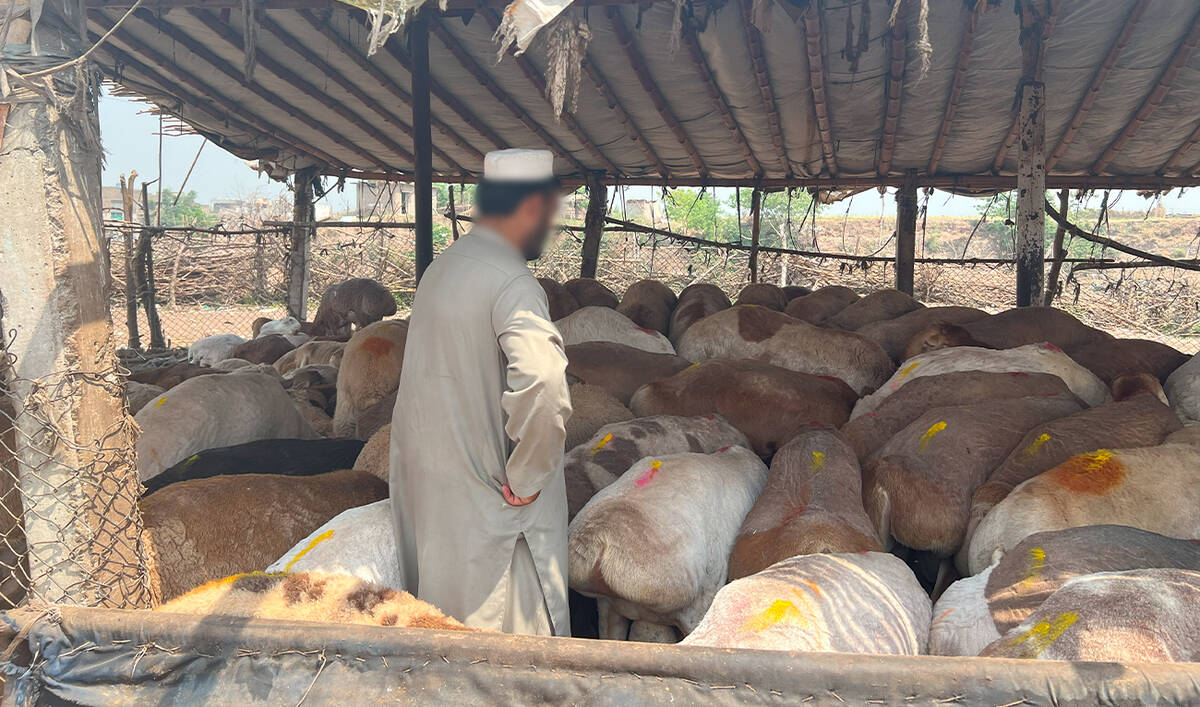ISLAMABAD: A 10-member joint investigation team (JIT) has been formed by Khyber Pakhtunkhwa Police after a local tourist was lynched to death in Swat over an accusation of desecrating the Holy Qur’an, confirmed officials on Sunday, noting that 23 suspects have been arrested based on the incident’s CCTV footage.
The tourist, Muhammad Suleman, who belonged to Pakistan’s Sialkot city, was dragged from a local police facility by a mob on Thursday before being tortured, killed and set on fire on suspicion of burning the pages of the Islamic scripture.
According to a notification seen by Arab News, the JIT includes senior police officials along with members of the Counter Terrorism Department, Special Branch and Intelligence Bureau to uncover the facts of the incident and bring those involved to justice.
“The JIT has started systematically collecting evidence, working along modern scientific and technical lines, including performing forensic analysis of the CCTV footage,” Superintendent of Police Hazrat Khan, who is leading the team, told Arab News. “We have also recorded statements from eyewitnesses and are adopting other investigative means.”
Khan said the team was investigating the matter from all possible angles to ensure that the perpetrators of the crime do not evade justice.
Asked about the details of the incident, he said that as soon as the accused was brought to a local police station on the fateful day, a large number of people stormed the building and damaged property and vehicles.
He confirmed the mob took the accused, killed him and then burned his body.
“So far, 23 people have been arrested, and efforts are underway to arrest more of the individuals involved,” he added.
The suspects in the case are facing several charges, including premeditated murder, rioting, unlawful assembly, use of deadly weapons and obstructing public servants in the discharge of their duties.
Giving details of the damages to the police station caused by the enraged mob, the police spokesperson in Swat, Nasir Iqbal, said that two motorcycles, five personal vehicles and one police mobile were set on fire.
He informed the building had also been damaged and ransacked by people.
Iqbal said all arrested individuals were local residents, and no political leader had been found involved in the incident.
“In the police report, 49 people were named after being identified through CCTV footage, and over 2,000 others were listed as unknown suspects,” he added.
Asked about reports of police negligence while dealing with the situation, he said no inquiry had been initiated against the Station House Officer (SHO) of the police precinct that came under attack.
He also maintained that all details of the case would be mentioned in the JIT report which was still investigating the matter.
The incident also came up for discussion in the National Assembly of Pakistan where the defense minister, Khawaja Muhammad Asif, said on Sunday it was parliament’s responsibility to take a clear stance on the issue.
“It is the responsibility of this parliament to unanimously stand and protect the people and minorities against such violence,” he said during his speech.
The minister added that no one should exploit the incident for political purposes, adding that Islam prohibited the killing of innocent people in the name of religion.
“No evidence of blasphemy has been found against those who were killed across the country in different incidents by mobs and, in many cases, people leveled such allegations to settle personal scores,” he continued.
Speaking to Arab News, security expert Syed Kaleem Imam emphasized the need to build police capacity to handle such sensitive situations and to educate the community to prevent such incidents.
“There are standard operating procedures in place to handle such crimes, but unfortunately, the police often struggle to control the mob or secure the accused due to a lack of understanding of the situation,” Syed Kaleem Imam, former inspector general of police, said.
“There should be more mock exercises for community policing to help the law enforcers deal with such incidents at every level,” he continued, adding that police officials faced undue inquiries and feared for their jobs when they resorted to the use of force in such emergency situations.
Imam also noted the government should stop pandering to popular sentiment and take proper action against such crimes, committed in the name of religion.
“There should be no administrative leniency toward criminals,” he emphasized. “The government should also sensitize the community through mosques and tell them that if anyone commits such crime [of blasphemy], they should be dealt with by the police. The locals should be made to refrain from using loudspeakers at the mosques to spread messages in such sensitive situations.”
Joint investigation team arrests 23 in mob lynching case in Pakistan’s Swat valley
https://arab.news/brvht
Joint investigation team arrests 23 in mob lynching case in Pakistan’s Swat valley

- The incident happened when a local tourist was accused of desecrating the Holy Qur’an by people
- Pakistan’s defense minister urges parliament to protect people and minorities against such violence
Ex-PM Khan aides rally to Lahore to discuss party’s strategy, upcoming protest movement

- The development comes days after Punjab Assembly speaker suspended 26 PTI Punjab lawmakers for 15 sittings following a ruckus in House
- Last week, the party announced it would launch a nationwide protest movement against the government after the Islamic month of Muharram
ISLAMABAD: Former prime minister Imran Khan’s top aides left for the eastern city of Lahore from the northwestern Khyber Pakhtunkhwa (KP) province and other parts to discuss the party’s political strategy and shape its protest movement against the government.
The development comes days after PTI provincial lawmakers protested in the Punjab Assembly during Chief Minister Maryam Nawaz Sharif’s speech on June 27, wherein she highlighted her government’s achievements and budget priorities, prompting the speaker to suspend 26 PTI members of the provincial assembly (MPAs) for 15 sessions.
However, members of the PTI, which plans to launch an anti-government protest movement later this month, maintained on their way to Lahore that the objective of their gathering in the eastern city was to express solidarity with the party’s suspended lawmakers, shape their future strategy and discuss matters relating to their upcoming movement.
“We have to take this [movement] up to the maximum till August 5 and for that, this is our first meeting being held in Lahore,” Ali Amin Gandapur, the KP chief minister and a top Khan aide, told reporters in Jhelum.
Gandapur didn’t offer further details and said their future course of action will be shared in due course.
Gohar Khan, another senior PTI member, said they had informed the Punjab government about their meeting in Lahore through a formal letter.
“We will go there today, and tomorrow brief discussion will take place there. But this is not a rally, we are going for a meeting,” he said. “Our 26 parliamentarians, MPAs, have been suspended... and we have summoned a parliamentary party meeting over there to finalize a future strategy.”
The PTI last week announced it would launch a nationwide protest movement against the government after the Islamic month of Muharram, days after Pakistan’s top court denied the party reserved parliamentary seats for minorities and women.
The party has frequently held protests in recent years, demanding a probe into Feb. 2024 election results and the release of Khan, who has been jailed for nearly two years. Pakistani authorities deny the allegations and accuse the ex-premier and his party of leading violent anti-government protests in the past, particularly in May 2023 and Nov. 2024.
The PTI announced the latest round of protests after the Supreme Court’s constitutional bench on June 27 ruled that the party was not entitled to reserved seats in the national and provincial assemblies, upholding an earlier verdict by the Peshawar High Court. The dispute arose after the PTI lost its electoral symbol ahead of the February 8, 2024 national polls and its candidates contested as independents.
Despite PTI-backed candidates winning the most general seats, the party was denied reserved seats for women and minorities, which are allocated to political parties based on proportional representation, by the Election Commission of Pakistan (ECP).
Afghan cattle farmers fear for future and flock as Pakistan deportation threat looms

- Kuchi tribe members, who trace their origins to neighboring Afghanistan, frequently migrated to Pakistan to raise livestock
- They fear repatriation as Pakistan has not yet extended June 30 deadline for Afghan Proof of Registration card-holders to leave
ISLAMABAD: Saeed Khan tapped his wooden staff rhythmically as he guided over two dozen cattle and sheep into a livestock enclosure bound by mud and fencing fashioned out of thorny branches. The soft sound of hooves over the dusty ground could be heard as Khan went about his work, with the occasional sound of bleats filling the air.
Khan, 48, is a member of the nomadic Kuchi tribe that traces its origins to Afghanistan. The Kuchis depend on animals for their livelihood and their movements historically were determined by the weather and the availability of good pastures.
Khan, whose ancestors used to come to Pakistan only during the winters and would return to the high-altitude pastures of Afghanistan during summers, made Pakistan his permanent home in the ‘80s, but he now fears for the future, with
Islamabad’s June 30 deadline for Afghan Proof of Registration (PoR) card holders to leave the country over by almost two weeks.
“At first, there wasn’t any card issue,” Khan told Arab News, minding his flock in Islamabad. “Our people didn’t know much about it. It’s only now that the problem has come up, that we’ve realized.”

The problem Khan referred to is a controversial deportation drive that Pakistan launched in 2023 against what it described as “illegal foreigners,” mostly Afghans, in the country. Islamabad this year said it wanted 3 million Afghans to leave the country, including 1.4 million people with PoR cards and some 800,000 with Afghan Citizen Cards (ACC).
According to data from the UN refugee agency (UNHCR), more than 900,000 Afghans have left Pakistan since the expulsion drive began. While Pakistan deported thousands of ACC holders, the government said those with PoR cards could stay until June 30.
The Pakistan government cites economic stress and security concerns as reasons to push ahead with the expulsion drive, while human rights advocates say the move threatens people who have lived in Pakistan for decades and contributed significantly to its informal economy and urban infrastructure.
The Kuchi nomads would spend the winters in the Indus Valley region or parts of southern Afghanistan and Balochistan before heading for the Hindu Kush mountains in the summer each year, according to Professor Thomas Barfield, president of the American Institute of Afghanistan Studies and a leading anthropologist on Afghan culture at Boston University. Presently, they number around a million in Pakistan and Afghanistan.
Khan, after settling in Pakistan, has raised animals not only to sell them for the Eid Al-Adha sacrifice, when cattle are in high demand, but also for exports.
“I do both cattle and sheep [farming],” Khan explained. “Especially Turkish sheep for sacrifice. [But] most of our animals go to factories, one in Raiwind Lahore, one in Kasur, one in Kamoke, then they’re exported abroad.”

There are many mud shelters near Khan’s home along the Qur’ang river in Islamabad that now lie abandoned. They were once inhabited by Kuchi families who had ACCs but were expelled by Pakistani authorities.
The empty shelters serve as a stark reminder for Khan and other PoR card-holders such as his nephew, Mohammad Ullah, of what the future may bring.
“This place where they used to live, they left it as they were,” Ullah told Arab News, pointing to the empty huts.
Some ACC holders remain, concealing their identity out of fear of deportation, but the majority of Kuchis here holds PoR cards. Some of the Kuchis were left out when they were being registered as they were away herding animals in remote areas.
A Kuchi person, who spoke to Arab News on condition of anonymity, said his entire family had PoR cards except for him.
“The thing is, we have six children here. If I go to Afghanistan, my children will stay here, right?” he asked. “So, what will I do there, and what will they do here?”

Khan also worries about his livestock and says he would have to sell them all if Pakistani authorities forced him to leave.
“Because they won’t let us take it across the border [to Afghanistan],” he said, bearing a tensed look on his face.
Wasim Akram hails ‘modern-day great’ Starc on 100-Test milestone

- Mitchell Starc becomes the 83rd player and 16th Australian to play 100 Tests
- The 35-year-old is only the second Australian fast bowler after Glenn McGrath
KARACHI: Pakistan fast bowling legend Wasim Akram on Saturday hailed Australia’s Mitchell Starc as a “modern-day great” for reaching 100 Test appearances.
Starc, who draws comparisons with fellow left-arm quick Akram, will reach the milestone later Saturday when the third Test against the West Indies begins in Jamaica.
“It is a big deal in this day and age to reach 100 Tests, congratulations to Starc,” Akram told AFP.
“That shows the quality and resolve of the man.”
The 35-year-old becomes the 83rd player and 16th Australian to play 100 Tests, and only the second Australian fast bowler after Glenn McGrath.
“To play 100 Tests shows how consistent Starc has been and also shows where his priorities lie — that is to play red-ball cricket,” said Akram.
“He has also played Twenty20 and league cricket but his career in Test cricket is way ahead and to me he is a modern-day great.”
Starc stands on 395 Test wickets, so has the tantalising prospect of taking his landmark 400th wicket during his 100th Test. His strike rate is remarkably similar to Akram, who retired in 2002 after taking 414 wickets in 104 Tests.
Both players, said Akram, had suffered injuries to “every joint, every part of the body” during their careers.
“People often compare us but we have played in different eras,” said Akram.
“He’s got the pace, he’s got the swing and he’s bowling very intelligently to the new batsman, especially with the new ball.”
Pakistan eyes Google collaboration for community-driven innovation and AI adoption

- Pakistan is currently focused on AI training in the fields of education, workforce development and industrial innovation
- Minister says enhanced collaboration will accelerate Pakistan’s integration into the global AI ecosystem, digital empowerment
ISLAMABAD: Pakistan and American multinational corporation and technology giant Google are seeking to collaborate with each other in community-driven innovation and the adoption of artificial intelligence (AI) in the South Asian country, according to the Pakistani IT ministry.
The statement came after IT Minister Shaza Fatima Khawaja’s meeting with Google’s Regional AI Developer Ecosystem and Communities team to explore strategic collaboration in advancing Pakistan’s AI landscape.
The Google team provided an overview of their developer ecosystem, contributions of Google Developer Groups (GDGs), community-based AI initiatives, and impactful platforms like Taleemabad.
In the wider policy discussion, Khawaja emphasized the government’s focus on AI training across three critical domains: mainstream education, workforce development including freelancers, and industrial innovation.
“She stressed the need for inclusive access to tools such as the AI Seekho program, sandbox environments, and cloud credits,” the IT ministry said.
“She called for enhanced collaboration between Google and the Ministry of IT & Telecommunication (MoITT) to accelerate Pakistan’s integration into the global AI ecosystem and promote equitable digital empowerment.”
During the meeting, Khawaja also had an interactive session with the N+1 team, a group of young Pakistani developers recently selected among the global top 10 in the Google Solution Challenge. The team proudly represented Pakistan at the regional showcase in the Philippines.
Khawaja praised their achievement and called it a testament to the country’s emerging talent pool and the importance of nurturing such success stories through structured support and mentorship, according to the IT ministry.
On Friday, Google said it has expanded access to its advanced video generation model, Veo 3, allowing users in Pakistan and over 150 other countries to create eight-second videos from photos with sound.
The move comes amid a global surge in interest in creative AI tools, with content creators using different platforms to generate video stories and bring still images to life. With Pakistan’s growing pool of digital creators, the rollout is expected to spur local innovation in short-form content.
Pakistan, Bahrain vow to boost security cooperation

- Officials of the two countries held discussions in Manama on counter-terrorism, human trafficking and anti-narcotics
- Pakistani interior minister calls enhancing cooperation in counter-narcotics, anti-human trafficking ‘need of the hour’
ISLAMABAD: Pakistan and Bahrain have resolved to further strengthen their security collaboration in various fields, Pakistani state media reported on Saturday.
The consensus was reached during a meeting between Pakistan’s Interior Minister Mohsin Naqvi and his Bahraini counterpart, General Sheikh Rashid bin Abdullah Al-Khalifa, in Manama.
The two sides held discussions on bilateral cooperation in counter-terrorism, combating human trafficking and anti-narcotics efforts as well as to make Pakistan-Bahrain Joint Security Committee more effective.
“Enhancing cooperation in counter-narcotics and anti-human trafficking efforts is the need of the hour,” Naqvi was quoted as saying by the Radio Pakistan broadcaster.
The Bahraini interior minister said his country valued Pakistan’s cooperation in security and other fields.
Bahrain is one of the important countries in the Gulf Cooperation Council (GCC), and a favorite destination for the Pakistani workforce since the early 1970s, according to the Pakistani foreign ministry.
Both countries have a Joint Ministerial Commission (JMC) at the level of the foreign ministers and a trade volume that has ranged between $500 million and $1 billion in recent years.











